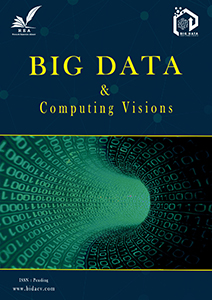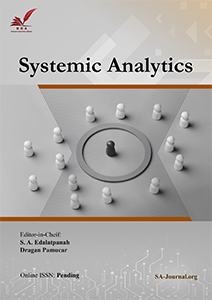Aims and scope
Management Analytics and Social Insights (MASI) is a pioneering international peer-reviewed journal at the forefront of fostering innovative and interdisciplinary research that marries the worlds of data-driven management analytics and the rich tapestry of social insights. MASI is dedicated to advancing knowledge, bridging traditional boundaries, and facilitating collaboration across a broad spectrum of domains, all unified by the common thread of optimizing decision-making processes and strategies.
Our primary aims and scope encompass, but are not limited to, the following key areas:
-
Data-Driven Management: MASI explores the theoretical foundations and practical applications of data analytics, quantitative analysis, and artificial intelligence techniques in the context of modern management practices. We welcome research that pushes the boundaries of data-driven decision-making and its impact on business, sustainability, and society.
-
Integration of Social Insights: The journal investigates the integration of social perspectives, human behavior, and societal dynamics into management and decision-making processes. This includes examining how social factors influence strategic choices, organizational behavior, and the ethical dimensions of management.
-
Interdisciplinary Synergy: MASI highlights the value of interdisciplinary collaboration, encouraging researchers to leverage insights from diverse fields such as mathematics, computer science, economics, psychology, sociology, and more. We emphasize problem structuring methods, decision support, and strategic approaches that bridge the gap between management analytics and social sciences.
-
Sustainability and Ethics: Within the context of data-driven decision-making, MASI addresses sustainability concerns and ethical considerations. We explore the responsible use of data, environmental impacts, and social responsibility in management practices.
-
Computational Intelligence: The journal advances the field of computational techniques, artificial intelligence, deep learning, and soft computing methods applied to management challenges. We investigate how these techniques enhance decision-making, prediction, and optimization across various management scenarios.
-
Performance Analysis: MASI delves into the measurement of performance, metrics, and indicators in different domains, including business analytics, construction management, operations, and beyond. We seek to improve the assessment and enhancement of performance across organizations.
-
Multi-Criteria Decision-Making: Complex decision-making processes involving multiple conflicting criteria are explored extensively. MASI addresses the challenges of optimizing across various dimensions in diverse decision-making contexts.
-
Strategic Decision-Making: The realm of strategic management is a key focus, covering decision-making processes, competitive strategies, and long-term planning. MASI encourages research that enhances the strategic capabilities of organizations.
-
Knowledge-Based Systems: We emphasize the development and application of knowledge-based systems for decision support, expert systems, and intelligent management solutions. MASI promotes the use of cutting-edge technology in knowledge management and decision-making.
- Industrial Management: Integrating industrial engineering principles with strategic management, this scope optimizes systems, processes, and resources for enhanced industrial efficiency. Topics include process improvement, quality control, and supply chain management, with a focus on real-world applications and data-driven analytics. Articles within this scope contribute insights and solutions for the challenges faced by industrial enterprises.
In summary, Management Analytics and Social Insights serves as a dynamic platform for disseminating impactful research that unifies diverse conventional and emerging domains. By advancing the frontiers of data-driven management analytics and integrating social insights, the journal aims to contribute to the advancement of knowledge and the practical application of optimal solutions in various management contexts.
Authors, researchers, and practitioners from around the world are invited to contribute their innovative research, driving advancements in the realms of data-driven management and social sciences, and fostering cross-disciplinary collaboration in pursuit of optimal strategies and solutions.
 Metrics
Metrics



